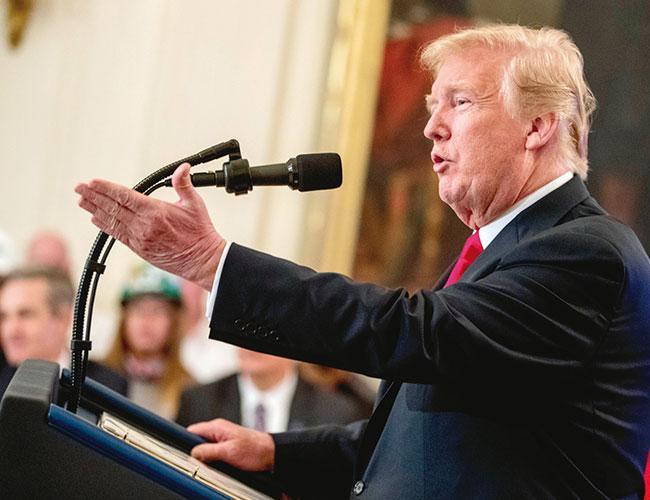
President Donald Trump has invited Russian President Vladimir Putin to Washington this autumn, the White House said on July 19, a daring rebuttal to the torrent of criticism in the United States over Trump’s failure to publicly confront Putin at their first summit for Moscow’s meddling in the 2016 election.
Four days after Trump stunned the world by siding with Putin in Helsinki over his intelligence agencies, the president asked national security adviser John Bolton to issue the invitation to the Russian leader, said White House spokeswoman Sarah Sanders.
What happened at Monday’s one-on-one between Trump and Putin with only interpreters present remained a mystery, even to top officials and U.S. lawmakers who said they had not been briefed.
Trump’s director of national intelligence, Dan Coats, said in response to a question at the Aspen Security Forum in Colorado: “Well, you’re right, I don’t know what happened at that meeting.”
The coveted invitation was sure to be seen as a victory by Putin, whose last official visit to the United States was in July 2007, when he spent two days at the Bush family compound.
Both Trump and Putin earlier on July 19 praised their first meeting as a success and blamed forces in the United States for trying to belittle its achievements, Trump citing discussions on counterterrorism, Israel’s security, nuclear proliferation, cyber attacks, trade, Ukraine, Middle East peace and North Korea.
In one Twitter post, Trump blamed the media. “The Summit with Russia was a great success, except with the real enemy of the people, the Fake News Media.”
In Moscow, Putin said the summit “was successful overall and led to some useful agreements” without elaborating on the agreements.
Criticism continues
Top Senate Democrat Chuck Schumer criticized the invitation. “Until we know what happened at that two hour meeting in Helsinki, the president should have no more one-on-one interactions with Putin. In the United States, in Russia, or anywhere else,” he said in a statement.
Coats, who on July 16 roundly defended the intelligence agencies’ findings of Russian meddling, also advised against a one-on-one meeting with Putin, saying he “would look for a different way of doing it.”
An official visit by a Russian president to the United States is a rare event: the last time was in June 2010 with Dmitri Medvedev, now Russian prime minister.
A senior White House official said Bolton extended the official invitation to Putin on July 19 via his Russian counterpart. No date has been set and it was unclear whether it would be timed for the U.N. General Assembly in late September.
Trump defended his efforts to build a relationship with Putin in an interview broadcast on July 20, saying they got along well but their conversations were “not always conciliatory.”
German Chancellor Angela Merkel welcomed on July 20 Trump’s invitation to Putin to meet in Washington.
“I think it should become normal again for Russia and American presidents to meet,” Merkel told a news conference in Berlin.
The week was one of the toughest for Trump since he took office 18 months ago as aides struggled with damage control and convincing
Americans that the president did not favor Russian interests over his own country’s. Forty-two percent of registered voters said they approved of Trump’s overall job performance, according to a Reuters/Ipsos opinion poll taken after the summit.
Bolton on July 17 laid out four talking points for the crisis-hit White House, according to one official: that Trump stress he supports U.S. intelligence agencies, that there was never any Russian collusion with his campaign, that Russian meddling is unacceptable and the United States is doing everything it can to protect elections in 2018 and beyond.